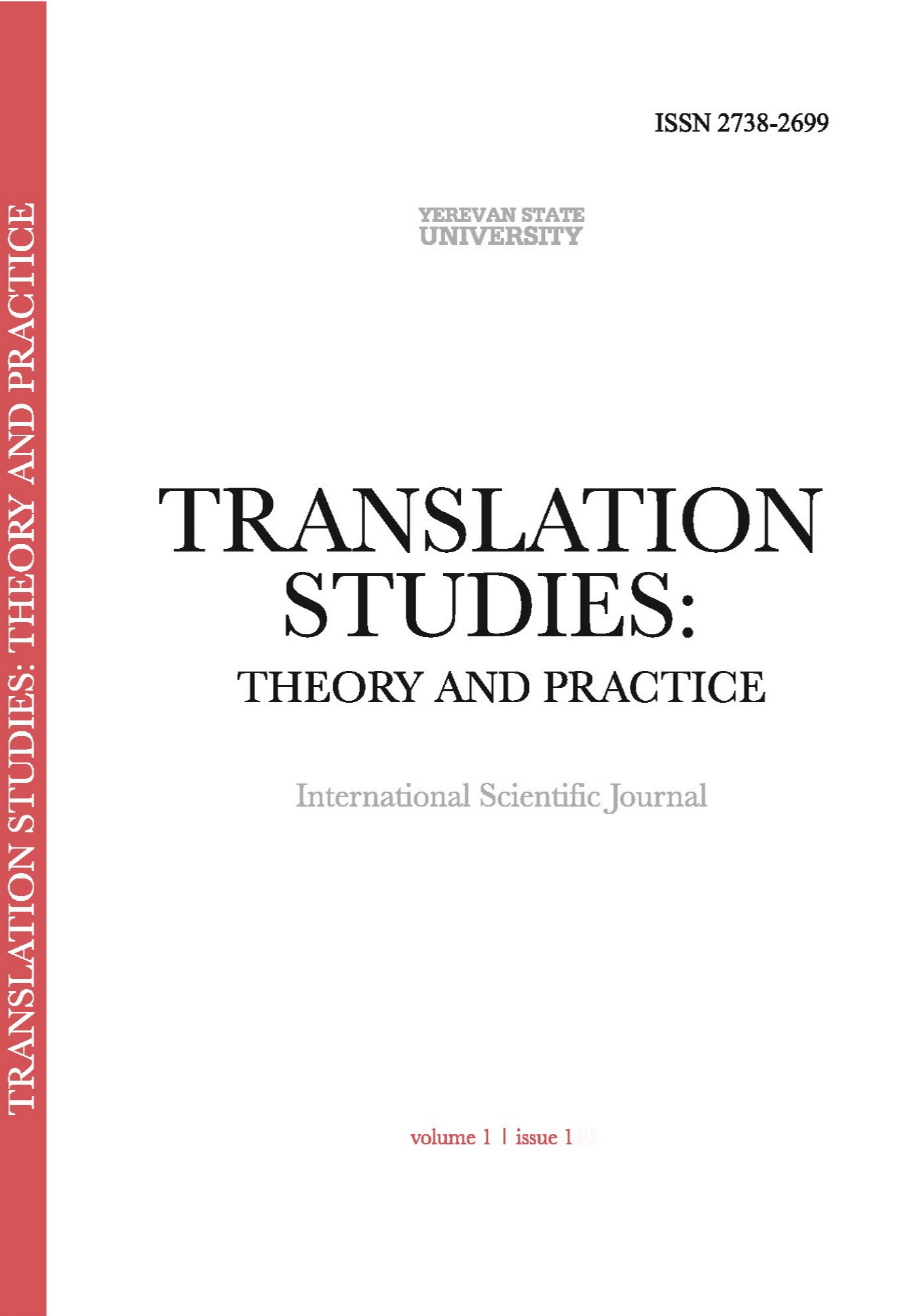Translations of the Thousand and One Nights in Georgia and Their Adaptations in Georgian Folklore
DOI:
https://doi.org/10.46991/TSTP/2021.1.1.72Keywords:
Folktale, Literature, Narrative Tradition, OrientAbstract
Translation is one of the ways in a process of adaptations of fairytales of foreign origin. From this perspective, it is very important to consider literary sources in the study of oral narrative materials. The large numbers of the folktales has a rich literary tradition and some plots of the folktales come from the literature, spread and interpreted by folk narrators. This article focuses on Georgian folktales related to the stories from “The Thousand and One Nights”, and compares the types of international folktales, such as ATU938 The Tale of the King Who Lost His Kingdom, ATU976 Which was the noblest act?, ATU930A The Predestined Wife, ATU561 Aladdin, ATU35 Ali Baba. The review of these tales reveals to us information about not only Georgian folktales related to “The Thousand and One Nights” but also the unique relationship between oral tradition and literate production.
References
Bauden, Frédéric, and Richard Waller (eds.). 2011. Le Journal d’Antoine Galland (1646-1715). La période parisienne. Vol. I (1708-1709). Louvain, Paris, and Walpole, MA: Peeters.
Cooperson, Michael. 1994. “The ‘Monstrous Birth’ of Aladdin.” In Harvard Middle Eastern and Islamic Review 1, 67-86.
Galland, Antoine. 1706-1717. Les mille et une Nuits. Contes arabes traduits en Français par Mr. Galland. The Hague: Pierre Husson.
Glonti, Alexandre (ed.). 1948. Kartluri zgaprebi da legendebi [Georgian folktales and legends]. Tbilisi: Sabchota mtserali.
Janashvili, Mose (translator). 1895. Atas erti ghame. Arabuli zghapari suratebit [The Thousand and One Nights. An Arabian fairy tale with illustrations]. Tbilisi.
Kekelidze, Korneli. 1958. Kartuli literaturis istoria [History of Georgian Literature]. Vol. 2. Tbilisi: Tbilisi State University Press.
Lortkipanidze, Mariam. 1973. “Tbilisis Saamiro.” In Sakartvelos istoriis narkvevebi. [Essays on History of Georgia]. Vol. II, 489-506. Tbilisi: Sabchota sakartvelo.
Marzolph, Ulrich. 2005. “The Arabian Nights in Comparative Folk Narrative Research.” In The Arabian Nights and Orientalism: Perspectives from East and West. (eds.) Yuriko Yamanaka and Tetsuo Nishio, 3-24. London: I.B. Tauris.
Marzolph, Ulrich, Richard van Leeuwen, and Hasan Wassouf. 2004. The Arabian Nights Encyclopaedia. Volume I. Oxford/ Denver /Santa Barbara: ABC Clio.
Orbeliani, Sulkhan-Saba. 1957. Sibrdzne Sitsruisa [the wisdom of the lie]. Tbilisi: Sabchota mtserali, 1957.
Purtseladze, Nana, and Tina Margvelashvili (translators). 1969-1996. Atas erti ghame [The Thousand and One Nights]. Vols 1-8. Tbilisi: Gamomtsemloba Sakartvelo.
Roth, Klaus. 1998. “Crossing Boundaries: the Translation and Cultural Adaptation of Folk Narratives.” In Fabula. Journal of Folktale Studies 39. Heft 3-4, 243-255.
Silagadze, B. 1979. “Arabuli tskaroebi.” In Sakartvelos istoriis narkvevebi [Essays on History of Georgia]. Vol. III, 38-51. Tbilisi: Sabchota sakartvelo.
Timsariani. 1903. Timsariani. Targmnili Sparsulidam Mepis Teimurazis Mier [timsariani. Translated from Persian by the King Teimuraz]. (ed.) E. Takaishvili. Tbilisi.
Uther, Hans-Jörg. 2004. The Types of International Folktales. A Classification and Bibliography. Based on the System of Antti Aarne and Stith Thompson. Part 1. Helsinki: Academia Scientiarum Fennica.
Wardrop, Marjory (translator). 1894. Georgian Folk Tales Translated by Marjory Wardrop. London: David Nutt in the Strand.
Hahanov, Aleksandr. 1901. Ocherki po istorii gruzinskoi slovestnosti. Vypusk 3. Literatura XIII-XVIII vv. Moscow: Universitetskaya tipografiya.
Marr, Nikolai. 1895. "Gruzinskii izvod skazki o treh ostroumnyh brat'yah iz Rusudaniani". Vostochnye zametki. Sankt-Peterburg, 221-259.
Downloads
Published
Issue
Section
License
Copyright (c) 2021 Elene Gogiashvili

This work is licensed under a Creative Commons Attribution-NonCommercial 4.0 International License.





